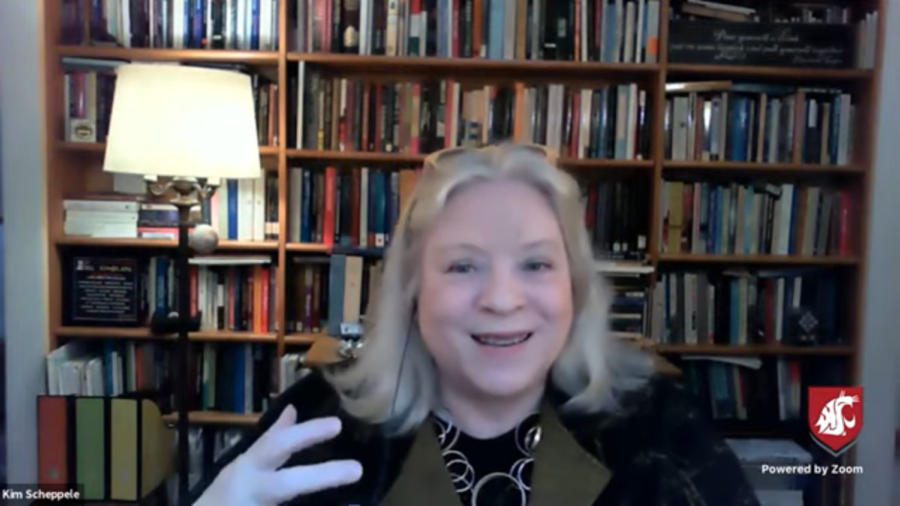Princeton professor speaks on rise of autocracies
Voters constantly forced to choose the better of two bad candidates; structure of political parties to blame for rise of autocracies
Princeton University professor Kim Lane Scheppele gave a presentation on autocracies during a Thomas S. Foley event Tuesday.
March 17, 2021
A Princeton University professor spoke on the rise of autocracies and what drives the collapse of democracy worldwide during a Thomas S. Foley Institute event on YouTube Tuesday afternoon.
Populism is not to blame for the decline of constitutional democracies, speaker Kim Lane Scheppele said during her presentation, “The crisis of democracy in global context.” Instead, the weakening state of traditional political parties is the driver of this decline.
Populism is a political tactic used to appeal to the majority of a population while de-legitimizing an opponent’s campaign, Scheppele said. Candidates propose a drastic change the public sees as needed and then go back on many promises made during their campaigns.
While populism is a factor in the rise of autocracies, the issue lies in political parties’ structure, which elevates dangerous candidates. Scheppele said political parties are failing to practice proper gatekeeping, which in effect, allows these autocrat politicians to rise to power.
“Voters can’t vote to crash their constitutional democracy if that option’s not on the ballot,” she said.
Voters are often forced to choose between the better of two bad candidates. Each election, two new options are given, and the public goes through the cycle again. Parties need to align themselves with voters instead of what favors each candidate, Scheppele said.
The decline of democracy is attributed to the fall of traditional political parties, she said. Parties need to prioritize constitutional design and learn how to work together instead of splintering off into newer, weaker parties who cannot forward an agenda that favors the entire nation.
The formation of new political parties only strengthens the power of disguised autocratic parties. Political power is shifting from the traditional left and right to a different political orientation that promotes either nationalism or liberalism, Scheppele said.
“Conservatism is what really needs to be rebuilt,” she said.
Autocrats limit other political options and then amend laws to ensure their power survives any independent institution’s opposition. Their government alters institutions, such as the judiciary and the media, to be politically dependent, putting more power into autocrats and their loyalists’ hands, Scheppele said.
Hungary’s Prime Minister Viktor Orban claimed to be against corruption and did not state his intentions to amend the constitution while campaigning. Within months of being elected, Orban enacted a new constitution. He was reelected a few years later in a rigged election, Scheppele said.
Autocracies mimic laws enacted by democratic nations, but these laws operate differently depending on the country, Scheppele said.
“Every time [an autocracy] is criticized, they say the U.S. has the same law,” she said.
In 1938, the U.S. passed a law requiring all political nonprofit organizations and lobbyists to disclose whether or not they are backed by foreign funding. While this law protected the democratic election process in the U.S., it had differing implications in other nations.
Russia, Hungary and others have adopted similar laws as well. Except in these nations, the foreign-funded organizations are typically the ones preventing corruption, she said.
Parties must be committed to the system they live in. Scheppele said all parties should respect the constitutional principles a nation is built upon. Political power is not everlasting; this fact needs to be recognized.
“The political parties are the only ones who can pull us out of [potential autocracy],” she said.










